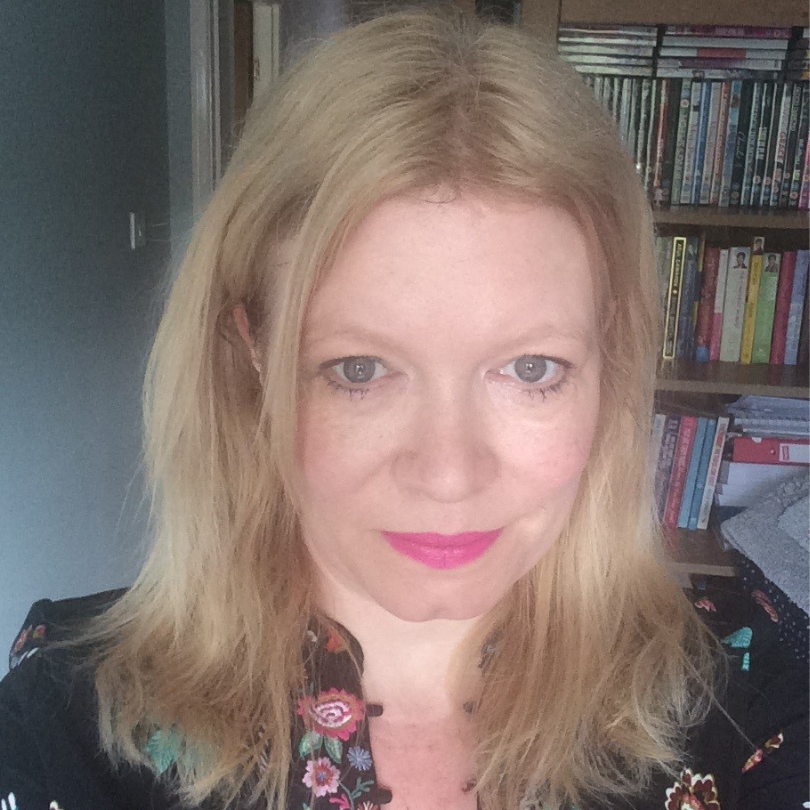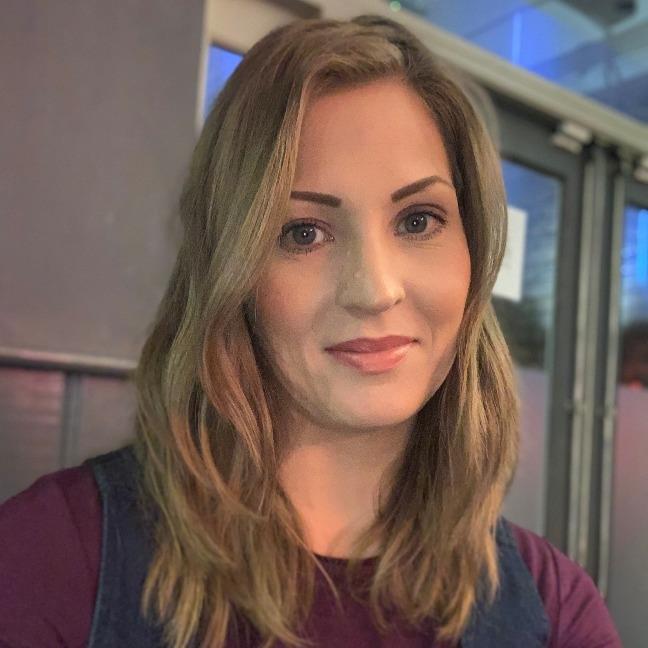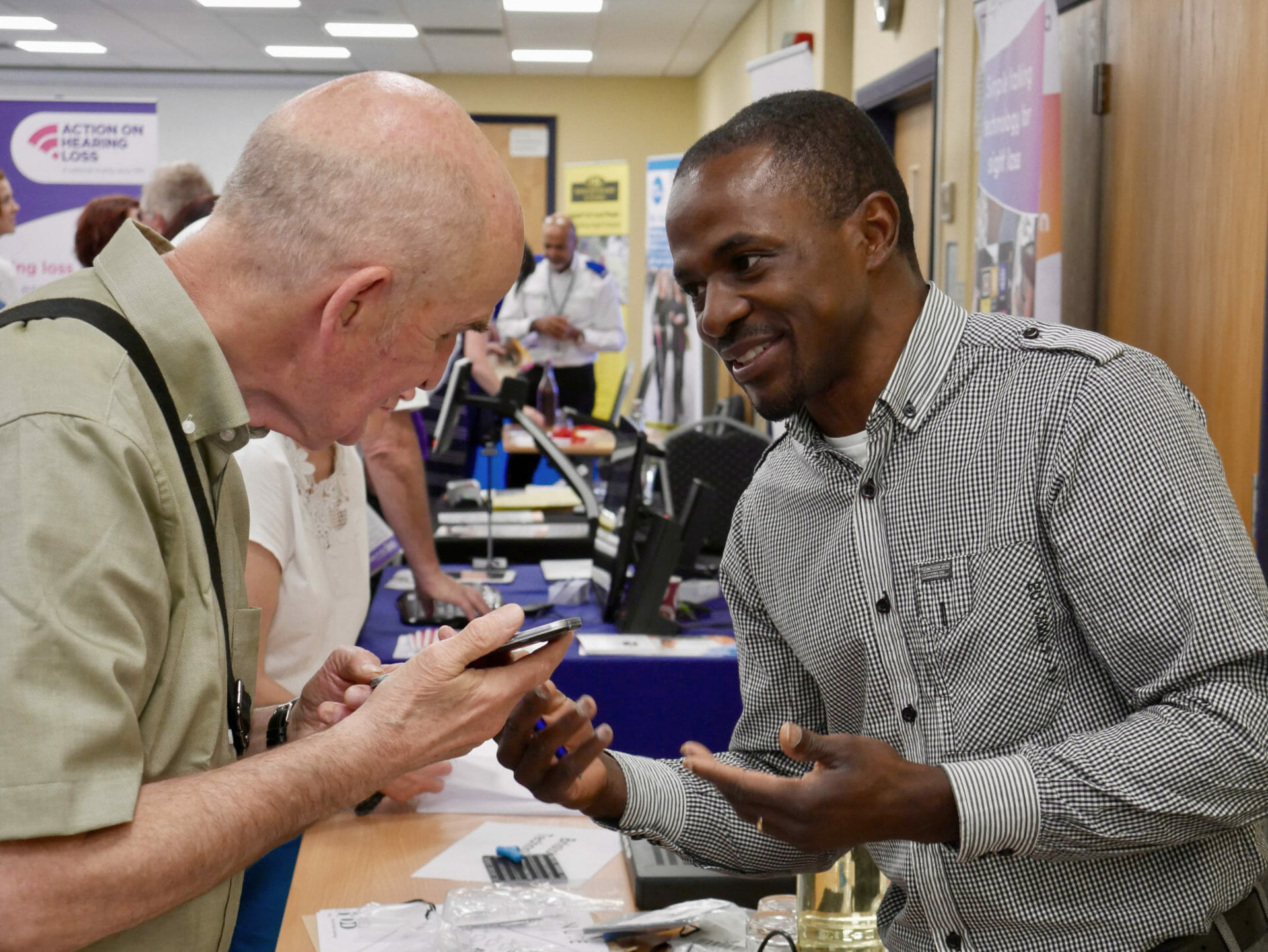You can get free counselling from a specialist sight and hearing loss counsellor at Deafblind UK.
Living with deafblindness brings physical and emotional challenges – but you don’t have to go through it alone. We’re here for anyone living with sight and hearing loss or supporting someone who does.
Your counsellor will listen to you and use their years of experience to empathise with what you’re going through.
About our counselling service
Counselling is a safe place to talk about anything that’s on your mind. It can help you cope with difficult life events and feelings and make sense of any issues that might be causing anxiety, depression, stress, trauma, loneliness, and isolation.
We offer counselling online, by telephone, email, and text. If you prefer to use BSL, we also offer video calls with a BSL interpreter.
The course is 10 weekly sessions long, and each session lasts 50 minutes. You can stop any time if you want to. At the end of your 10 sessions, you and your counsellor might agree to extend for another 10 weeks. It’s completely free, private, and confidential.
What is counselling?
Counselling is a type of talking therapy that involves talking to a qualified therapist about what’s going on in your life.
You’ll get one-to-one support from a counsellor who specialises in the emotional side of sight and hearing loss. Whether you’ve recently been diagnosed or have lived with deafblindness for many years, our team will listen to you and support you.
The benefits of counselling
Whatever’s going on in your life, counselling can help you cope with your feelings and make decisions.
Counselling can help you cope with:
- Mental health conditions, including depression and anxiety
- Feelings about your physical health, including your sight and hearing loss
- Difficult life events, such as bereavement or end of your relationship
- Processing emotions, including self-esteem and anger.
How does counselling work?
Your counsellor will talk with you about your life to help you process your feelings and come to your own decisions. They won’t tell you what to do or judge you.
Each session will be about you and what you want to talk about. Your counsellor might offer you a different perspective on things or encourage you to reflect on certain issues.
Specialist sight and hearing loss counsellor
Choosing a counsellor who you trust and feel comfortable talking with is important. Our counsellors are:
Hayley Headington
Hayley Headington has worked at Deafblind UK for 12 years, so she knows first-hand the challenges deafblindness brings. Hayley is a fully qualified therapist, with years of experience supporting people living with sight and hearing loss.
“I started work in 2011 at Rainbow Court (Deafblind UK’s supported living accommodation) firstly as a Support Worker and then later as a Senior Support Worker. In that time, I completed my Level 2 and 3 Health and Social Care qualification. I developed a vast understanding of the issues people who are deafblind face both physically and emotionally on an everyday basis.
I qualified as a Counsellor while working at Rainbow Court, which was following a true passion of mine. Following qualification, I was offered a role as a Counsellor with Deafblind UK. This was my dream career path, as it meant I could combine my knowledge and experience of working alongside people who are deafblind with the skills I had gained to offer our members counselling.
Day to day, I work with a small team of counselling colleagues who also specialise in supporting people living with dual sensory loss. I’m working towards a Counselling Supervision Qualification and Accreditation, and have had further training with the RNIB, The Trauma Alliance and Cruse (Bereavement).”
Amanda Easton
Amanda has worked at Deafblind UK for 10 years, and she has a thorough understanding of the issues that people who are deafblind experience on a daily basis.
“For years I wanted to become a counsellor and one day took the personal decision to embark upon the journey. It was during my studies that we started to offer Emotional Support. It is through this service that I had the privilege to understand the emotional impact of not only those living with deafblindness but their support network also.
I feel incredibly grateful that I am able to use my counselling qualification within Deafblind UK to support members and their support network through some very challenging times in our Counselling and Emotional Support service.”



